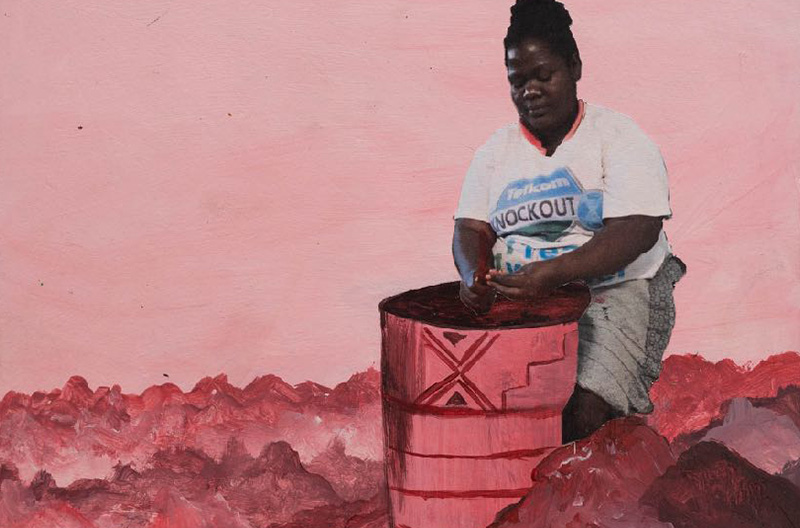Nkosinathi Quwe
Nkosinathi Quwe was born in 1981 in a small, rural Eastern Cape town in South Africa called Butterworth. Surrounded by mud huts, cattle and rolling hills, he had limited exposure to art or artists, yet he had a creative streak that manifested in drawings and making figurines with clay. As art was not offered as a subject at the high school he attended, he pursued the sciences, yet when it came to choosing a field at university, he immediately opted for a degree in fine art at the University of Johannesburg.
At this institution, he majored in painting and immersed himself in the history of this traditional medium. Unexpectedly, the artists that inspired him the most – the South African artist Dumile Feni and the German expressionist Käthe Kollwitz – were known for their drawings and etchings. He was captivated by not only their expressive lines but also how their art was informed by their acute socio-political awareness of the conditions in their respective societies. Quwe was interested in the parallel between Germany and South Africa – the crimes against humanity and the loss of life during the political turmoil in those countries.
When he finished his studies, Quwe initially taught art. A job in retail was followed by a two-year stint teaching English in South Korea. On returning to South Africa, he felt he had found his voice and applied that to art, with political intent, depicting the massacre of striking mine workers during the infamous Marikana strike (2012), that led to the deaths of 35 people at the hands of police and others.
After showing his work at the Turbine Art Fair (2015) in Johannesburg, he started participating in the Spier Creative Block programme, and was selected for the 2018 Nando’s Creative Exchange, which led to a major touring exhibition of his works. This experience also set him up to be a thoughtful future mentor to fellow artists.
Quwe is interested in exploring personal transformation and what kind of rituals, triggers or paths people choose to activate change in their lives. Black communities tend to gravitate towards churches or forms of spiritual practice when they want to prompt change or find solace, according to Quwe. This is why he has opted to represent this spiritual scene, though it is not religion or spiritualism per se that he wishes to bring into focus. He is interested in exploring the desire people have for transcendence and change.

